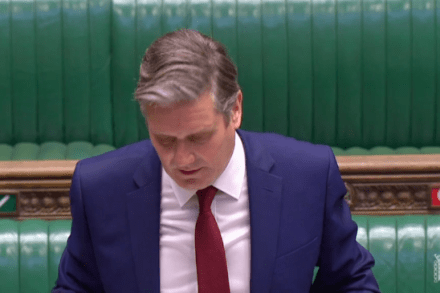Nicola Sturgeon today released her ‘roadmap’ for easing the lockdown in Scotland, after the first minister decided to pursue a separate strategy to Boris Johnson when it comes to lifting restrictions on freedom of association and movement. In an announcement, the first minister said that Scotland would pursue a ‘four-phase’ route out of lockdown, with some restrictions lifted next week, such as allowing people to meet others from another household outside. But, rather unfortunately, the majority of the guidance was unavailable to read, as the Scottish government’s website helpfully crashed soon after Sturgeon’s announcement, with thousands of users unable to access the new guidance. Happily though the SNP MP Carol Monaghan





















